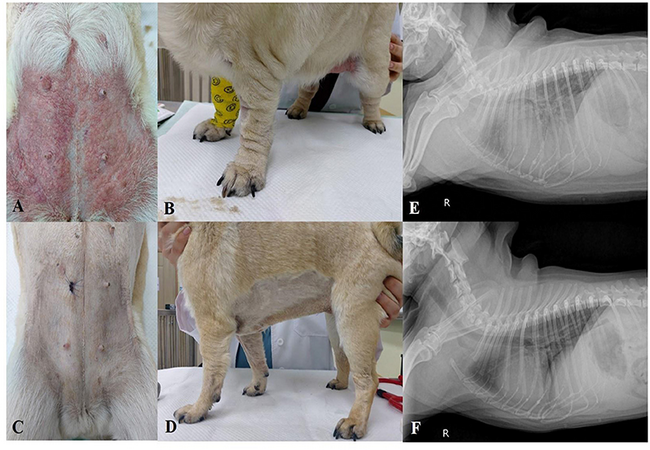Primary Immunodeficiency Disorders in Dogs: Veterinary Guide 2025 🧬🩺🐾

In this article
Primary Immunodeficiency Disorders in Dogs: Veterinary Guide 2025 🧬🩺🐾
By Dr. Duncan Houston BVSc
Hello, I’m Dr Duncan Houston BVSc, founder of Ask A Vet. Today we explore Primary Immunodeficiency Disorders (PIDs)—a group of inherited immune conditions in dogs. These disorders can lead to severe infections, poor growth, or even early death. In this 2025 veterinary guide, you’ll learn to recognize signs early, understand genetic risks, get diagnostics, and optimize long-term care 🧬🐶💙
1. What Are Primary Immunodeficiency Disorders? 🤔
Primary immunodeficiencies are inherited immune system defects—meaning puppies are born with them. These can affect antibody production, white blood cells, or immune signaling proteins. Unlike acquired immune suppression (e.g. due to chemotherapy or infection), PIDs are genetic and congenital in nature 🧪🧬
2. Common Types of PIDs in Dogs 🧠
- IgA deficiency: Poor mucosal defense → respiratory & GI infections 🦠
- Phagocytic dysfunction: Impaired white blood cell function 🧼
- Complement deficiency: Proteins like C3 are missing—prone to skin infections 🧬
- SCID (Severe Combined Immunodeficiency): Seen in Basset Hounds, Cardigan Welsh Corgis, and Jack Russell Terriers—fatal if untreated 💔
- LAD (Leukocyte Adhesion Deficiency): White cells can’t leave blood to fight infection 🚑
3. Breed Predispositions 🐾
Several breeds have known hereditary forms of immunodeficiency:
- 💡 Basset Hounds & Cardigans: SCID (X-linked, IL2 receptor)
- ⚠️ Jack Russell Terriers: SCID (DNA-PKcs gene)
- 🦴 Weimaraners, Shar-Pei: suspected phagocytic or IgA disorders
- 🐶 Irish Setters, Beagles, GSDs: partial IgA or IgM deficiencies
📢 Note: Genetic screening is now available for many of these! ✅
4. Clinical Signs: What to Watch For 🔍
- 📆 Early-onset symptoms (2–6 months of age)
- 💧 Recurrent skin or ear infections, especially antibiotic-resistant
- 💨 Respiratory signs: coughing, nasal discharge, pneumonia
- 🍽️ Digestive issues: chronic diarrhea, poor weight gain
- 🩹 Slow or failed wound healing, abscesses
- ⚰️ Sudden collapse or death from sepsis in severe SCID cases
5. Diagnosing Immunodeficiencies 🔬
- 🧪 CBC & blood smear: Check for neutropenia or lymphopenia
- 🧬 Immunoglobulin panels: IgA, IgG, IgM levels
- 🔬 Neutrophil function tests (e.g., oxidative burst, chemotaxis)
- 🧫 Flow cytometry: Analyze T and B lymphocyte markers
- 🧬 Genetic testing: Confirms X-linked SCID or DNA repair mutations
🧠 Tip: Diagnosis usually combines clinical suspicion, lab tests, and DNA confirmation where available.
6. Treatment Options 🛠️
6.1 Supportive Therapy
- 💊 Prolonged antibiotics for chronic infections
- 🦠 Antifungals for opportunistic infections
- 🧴 Wound cleaning, antiseptics, and antiseborrheic shampoos
6.2 Immune System Boosters
- 🧪 Intravenous immunoglobulins (IVIG)
- 💉 Colony-stimulating factors (e.g., G-CSF for neutropenia)
6.3 Advanced Options (Experimental)
- 🧬 Bone marrow or stem cell transplantation for SCID (early-stage clinical use)
- 🧫 Gene therapy research is in progress—especially for IL2γ mutations
⚠️ No true cure exists yet for most PIDs. But quality of life can be extended with rigorous supportive care and early diagnosis.
7. Prognosis & Outlook 📊
- 🟢 Mild IgA/complement issues: Often manageable long-term
- 🟠 Moderate LAD/phagocytic defects: Lifespan shortened, but quality possible with care
- 🔴 SCID: Fatal without transplant by 3–6 months old
🔁 Close vet follow-ups every 4–8 weeks are critical for monitoring infection control, medication adjustments, and early intervention.
8. Prevention Strategies 🛡️
- 📋 Genetic screening: Breeding programs should test known carriers
- 💉 Vaccination caution: Avoid MLV (modified-live) vaccines in affected pups
- 🧼 Environmental hygiene: Keep infected or immunocompromised pups away from crowded areas
✅ Nutritional support, stress reduction, and routine parasite prevention help strengthen what immune function they have.
9. Home Care & Lifestyle Support 🏡
- 🚿 Clean bedding, bowls, and surfaces daily
- 🥩 Balanced, high-protein diets with omega-3s
- 🧪 Monitor for infection signs: skin lesions, discharge, fever
- 📱 Connect via Ask A Vet for remote triage, test reviews, and infection control advice
10. When to Call the Vet 🚨
- 🐾 Wounds or infections that worsen after 2–3 days
- 🐶 Fever, weakness, or collapse
- 🧬 If planning to breed at-risk breeds—genetic testing advised
- ⚠️ Before giving vaccinations or new meds to immunocompromised dogs
11. Final Thoughts 📝
Primary Immunodeficiency Disorders are complex but increasingly understood. With vigilant care, early diagnosis, and proper management, affected dogs can enjoy improved health—even if their immune systems are fragile. Rely on your vet team, and tools like Ask A Vet,. 🐾💙
If you suspect immunodeficiency in your dog, or are navigating frequent infections, schedule a teleconsult via AskAVet.com today. Download our app to track meds, symptoms, and connect for ongoing support 🌟


